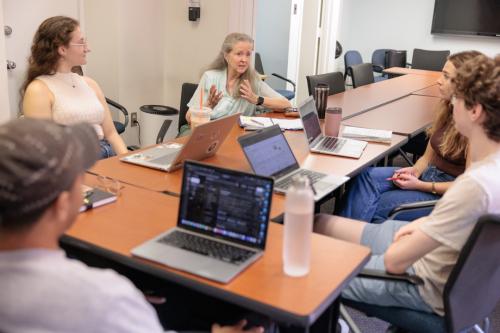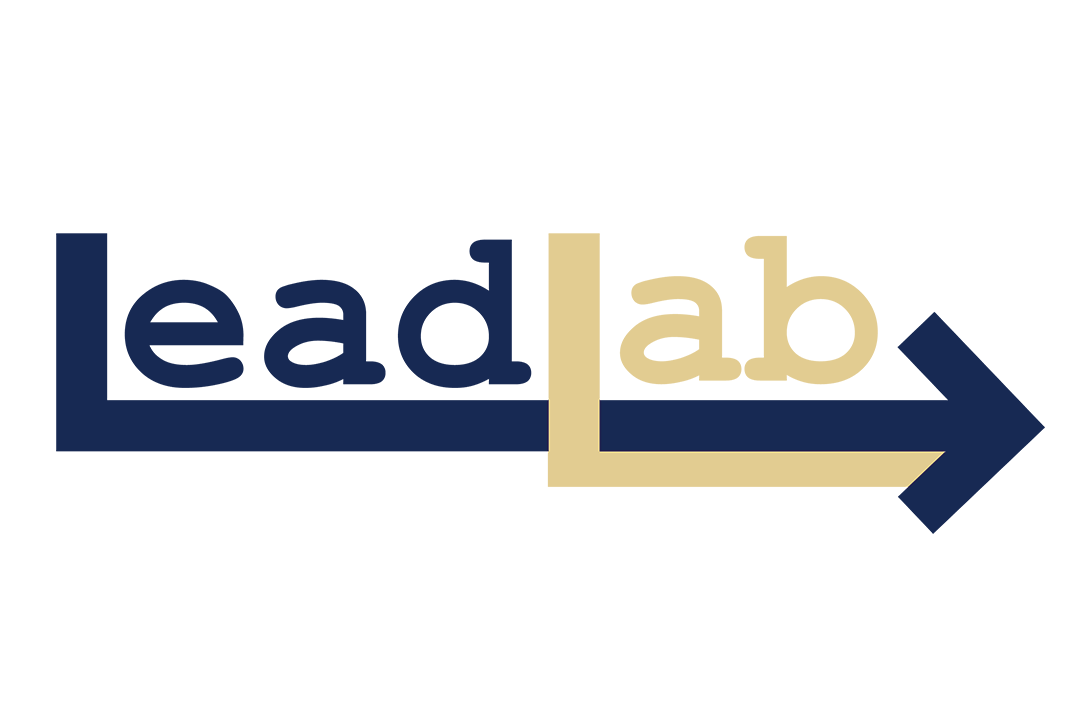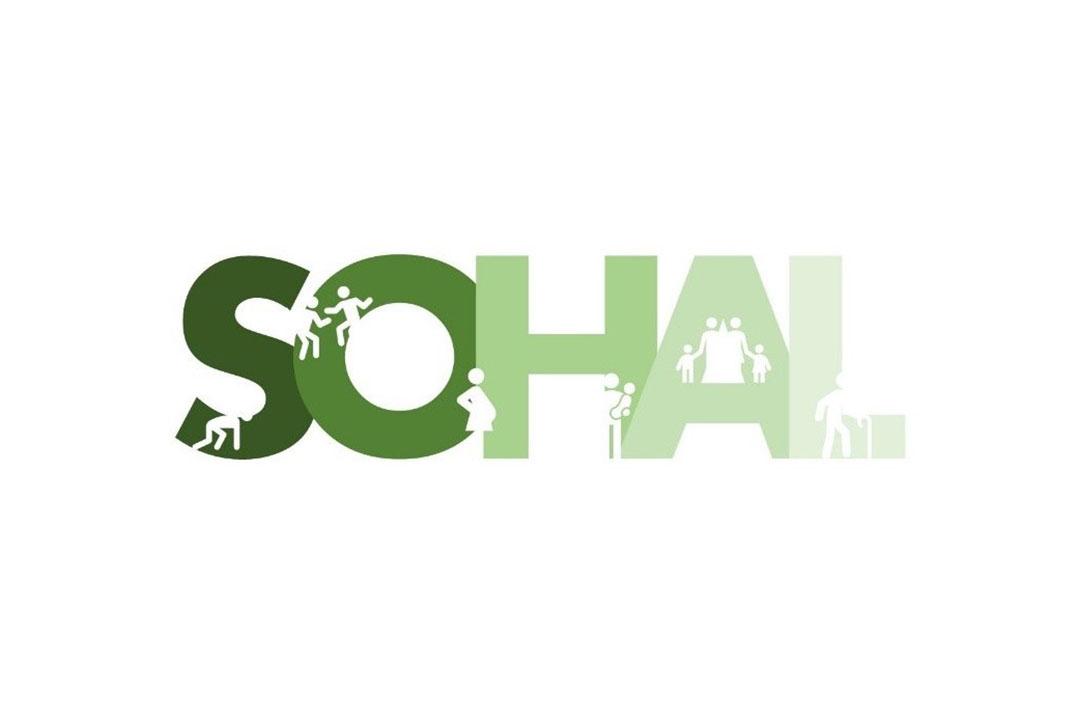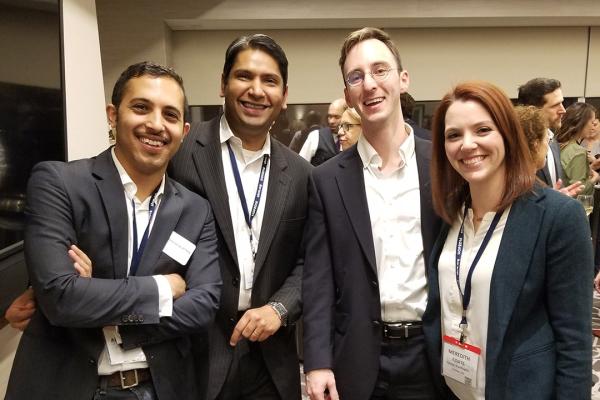PhD in I-O Psychology

The Doctor of Philosophy in Industrial-Organizational (I-O) Psychology delves into areas including personnel selection, training and development, work motivation and leadership.
Working closely with advisors, PhD students often win awards for their research, and many present each year at conferences held by the Society for Industrial and Organizational Psychology and the Academy of Management.
Resources
Note for prospective applicants: In general, individuals applying to the IO Program should have GREs in the 50th percentile or higher, UGPAs of 3.0+, meaningful research experience (research assistantships, honors thesis, presentations and/or publications, etc.), and interest areas that match those of the faculty. Admitted students' scores are usually notably higher. We evaluate all candidates holistically, looking at their entire application before making admissions decisions. Further information about IO Programs, standards and requirements is available on the SIOP website.
Research Labs
Collaboration and Organizational Learning Lab (COLLab)
Dr. Tiffany Bisbey’s Collaboration and Organizational Learning Lab (COLLab) conducts research examining how the way we work together impacts important workplace outcomes, with a specific focus on the role of teamwork.
- About the COLLab
Teamwork is critical for organizational success, particularly in high-risk industries where the consequences of failure are extreme, such as healthcare and the military. Our work considers how teams bounce back from setbacks to avoid failure, how to measure and predict these processes, and how to best develop resilient teams. Graduate and undergraduate research assistants work on projects examining a broad range of phenomena relevant to these contexts, such as psychological safety, team learning, employee voice, and workplace safety. For more information, visit the website or contact Tiffany [dot] Bisbey
 gwu [dot] edu.
gwu [dot] edu.

Leader Effectiveness amid Diversity (LEAD) Lab
Dr. Lynn Offermann’s LEAD Lab examines leadership and team issues with a particular interest in how these play out in diverse contexts.
- About the LEAD Lab
The world of work is increasingly populated by people from many backgrounds and individual capabilities and styles who need to work together collaboratively to achieve organizational success, and we examine how best to make that happen. Graduate and undergraduate research assistants work on projects including examining the dynamics of inclusive leadership, virtual leadership and communication, multidisciplinary teams, and racial and LGBTQ+ concerns in the workplace. For more information, contact lro
 gwu [dot] edu (lro[at]gwu[dot]edu).
gwu [dot] edu (lro[at]gwu[dot]edu).
SOHAL Lab
Dr. Yisheng Peng’s Stress & Occupational Health Across the Lifespan (SOHAL) Lab generally examines stress and occupational health issues across the lifespan.
- About the SOHAL Lab
Dr. Peng's first line of research focuses on aging and older workers issues, such as risky and protective factors of older workers’ occupational health, late career development, family caregiving, etc. His second line of research focuses on the impacts of social work environment (e.g., workplace mistreatment, emotional labor) on employees’ well-being and work outcomes. Graduate and undergraduate research assistants work on projects including college student workers (e.g., health behaviors, career development), ostracism/isolation, and proactive work behaviors. For more info, contact yishengpeng
 gwu [dot] edu (yishengpeng[at]gwu[dot]edu).
gwu [dot] edu (yishengpeng[at]gwu[dot]edu).
From Classroom to Career
Real-World Applications
Employers of all sizes seek industrial-organizational psychologists who can help guide organizational change. This work might include:
- Conducting research on employee retention and turnover
- Improving products through strategic customer surveys and feedback
- Advising leaders and team as they think through difficult decisions or craft company philosophy around topics such as diversity and inclusion
Internships
Many students also choose to pursue optional internships in the Washington, D.C., area. The department has ties to many local and national organizations, providing plenty of internship opportunities. Past internship employers include:
- Army Research Institute
- Federal Management Partners
- Fors Marsh Group
- GEICO
- ICF
- Mariott
- Personnel Decision Research Institutes
- U.S. Office of Personnel Management
- The World Bank
"I was able to earn trust from co-workers because of my subject matter expertise in the I/O area and basic research methodology. The program also really set me up for success [with] opportunities such as my fellowship at the Army Research Institute."
Kaitlin Thomas
PhD ’17, I-O Psychology
Course Requirements
The following requirements must be fulfilled: 72 credits, including 42 credits in required courses, 12 credits in elective courses, and 18 credits in dissertation research.
| Code | Title | Credits |
|---|---|---|
| Required | ||
| Methods/statistics | ||
| ORSC 8261 | Research Methods in Organizational Sciences | |
| PSYC 8231 | Psychological Testing and Measurement in Organizations | |
| Three graduate-level statistics courses | ||
| Industrial/organizational psychology core | ||
| ORSC 6212 | Personnel Selection | |
| ORSC 6214 | Organizational Training and Development | |
| ORSC 6297 | Special Topics | |
| PSYC 8243 | Seminar: Psychology of Leadership in Organizations | |
| PSYC 8245 | Seminar: Organizational Behavior | |
| PSYC 8260 | Psychology of Work Group Development | |
| PSYC 8291 | Theories of Organizational Behavior | |
| Psychology breadth | ||
| One course from the following: | ||
| PSYC 8253 | Social Cognition * | |
| PSYC 8254 | Social Influence * | |
| PSYC 8255 | Attitudes and Attitude Change * | |
| One course from the following: | ||
| PSYC 8203 | Experimental Foundations of Psychology: Learning, Memory, and Cognition * | |
| PSYC 8204 | Experimental Foundations of Psychology: Biological Basis of Behavior * | |
| Electives** | ||
| 12 credits in elective courses selected from the following: | ||
| ECON 6219 | Managerial Economics | |
| ORSC 6209 | Management Systems | |
| ORSC 6216 | Theories and Management of Planned Change | |
| ORSC 6217 | Productivity and Human Performance | |
| ORSC 6241 | Strategic Management and Policy Formation | |
| ORSC 6242 | Organizational Communication and Conflict Management | |
| ORSC 6246 | Comparative Management | |
| ORSC 6248 | Strategic Human Resource Planning | |
| ORSC 8265 | Current Issues in Organizational and Occupational Health | |
| PSYC 8203 | Experimental Foundations of Psychology: Learning, Memory, and Cognition * | |
| PSYC 8204 | Experimental Foundations of Psychology: Biological Basis of Behavior * | |
| PSYC 8211 | Community Psychology I * | |
| PSYC 8253 | Social Cognition * | |
| PSYC 8254 | Social Influence * | |
| PSYC 8255 | Attitudes and Attitude Change * | |
| PSYC 8256 | Introduction to Survey Research | |
| PSYC 8257 | Current Topics in Social Psychology | |
| STAT 2118 | Regression Analysis | |
| STAT 3119 | Design and Analysis of Experiments | |
| Dissertation | ||
| PSYC 8998 | Advanced Reading and Research (taken for 3 credits) | |
| PSYC 8999 | Dissertation Research (taken for 15 credits) | |
| *Can be used as an elective only if it is not chosen to fulfill the breadth requirement. | ||
| **The list of electives is not exhaustive. At least 3 credits must be taken in a course outside of the PSYC designation. | ||





